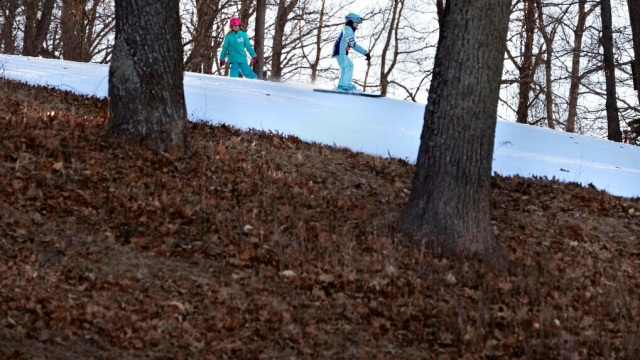We're getting our first official forecast for this winter, and some unexpected areas may be warmer and wetter than normal this season.
El Nino is back for the first time in four years, shifting the jet stream's course, which typically directs storm fronts. This shift is influenced by warmer and wetter Pacific air moving south, promising a different winter compared to the last few years.
The National Oceanic and Atmospheric Administration's climate prediction center just released the official forecast for meteorological winter, starting the first day of December and running through February.
The shift of the jet stream is expected to result in above-average temperatures for the northern regions of the country. This warming trend will be particularly noticeable in large portions of Alaska, the Pacific Northwest and northern New England. Additionally, a significant portion of the country, including areas extending northward from North Carolina and west to Nebraska through nearly all of California, is anticipated to experience temperatures higher than the seasonal norm.
This doesn't mean you'll be wearing swimsuits, but there'll be fewer freezing days.
The rest of the country is expected to have typical winter conditions with an even chance of warmer, colder or normal temperatures.
While NOAA says it doesn't anticipate any part of the U.S. being cooler than usual this winter, it does anticipate that the Southern half of the country will be a lot wetter than normal.
The South will experience a significant increase in precipitation, with more rain expected to extend from the East Coast all through the West Coast. Starting in Massachusetts, reaching down to Florida, and extending west all the way to California.
NOAA's outlook does not provide specific projections for seasonal snowfall accumulation. However, it anticipates that the increased precipitation could help alleviate drought conditions in the Southeast, the Gulf Coast (including the lower Mississippi Valley) and Texas.
SEE MORE: Shelters across US in need of winter apparel donations
Trending stories at Scrippsnews.com



